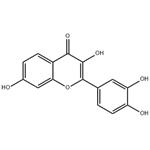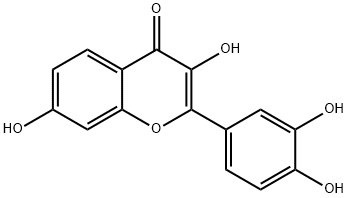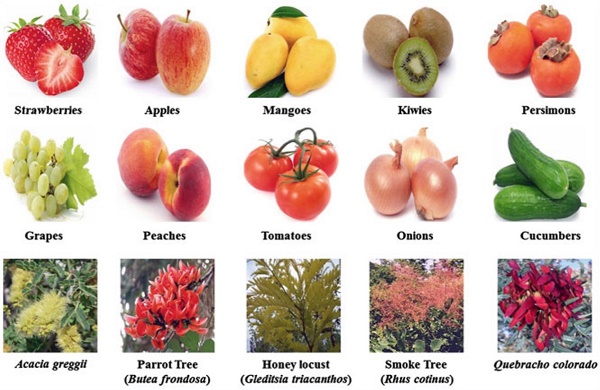Function and mechanism of action of Fisetin in cancer
Fisetin is a flavonoid with natural antioxidant, anti-inflammatory and anticancer activities. It is widely found in various vegetables and fruits, ranging from 2 to 160 μg/g, including cucumber, persimmon, strawberry and apple. Fisetin has been reported to have anticancer effects on various types of cancer, including astrocytes, ovarian cancer, oral cancer, gastric cancer, renal cancer, etc. It has a series of biological effects on cancer, such as inhibiting cell growth, triggering programmed cell death, reducing new blood vessel formation, preventing oxidative stress and inhibiting cell migration. In addition, it has the ability to enhance the effect of chemotherapy. Its anticancer properties can be attributed to multiple molecules and signaling pathways, including vascular endothelial growth factor (VEGF), mitogen-activated protein kinase (MAPK), nuclear factor κB (NF-κB), PI3K/Akt/mTOR and Nrf2/HO-1. The effects of fisetin in various types of cancer are shown below (Table 1):

Biological functions of Fisetin
Inhibit proliferation
The anti-proliferative activity of Fisetin is attributed to its ability to inhibit DNA synthesis and induce G0/G1 cell cycle arrest in cancer cells. Specifically, fisetin has been shown to inhibit the CDK6/cyclin D complex, which plays a key role in the G1 phase of the cell cycle. In addition, it can induce premature initiation of chromosome segregation in cancer cells and exit from mitosis without normal cytokinesis.
Reduce angiogenesis
Studies have found that fisetin has a strong anti-angiogenic potential that can prevent new blood vessel formation and disrupt the effectiveness of existing blood vessels. Specifically, it exerts its anti-angiogenic effect by regulating many important angiogenesis-related factors in cancer cells, such as VEGF, MMP2/9, eNOS, wingless, and Wnt signaling. In prostate cancer, it inhibits angiogenesis by reducing NF-κB activity and VEGF expression. It also inhibits the synthesis of hyaluronic acid, thereby upregulating the expression of high molecular weight HA, an anti-angiogenic protein.
Induces apoptosis
Several studies have shown that fisetin has the ability to induce apoptosis in cancer cells and that multiple mechanisms are involved, including activation of MAPK, NF-κB, p53, and generation of reactive oxygen species (ROS). Fisetin treatment leads to increased expression of pro-apoptotic proteins (Bak, Bax, and Bad), decreased expression of anti-apoptotic proteins (Bcl-xl, Bcl-2, and Mcl-1), and release of cytochrome c. It also activates caspase 3/8 and calpain, leading to DNA fragmentation and apoptosis in cancer cells. In bladder cancer, fisetin disrupts mitochondrial integrity and initiates the intrinsic pathway that induces apoptosis. Similarly, it induces mitochondrial-mediated apoptosis in lung cancer by generating ROS, which triggers mitochondrial membrane depolarization, apoptosis, and DNA fragmentation.
Prevents oxidative stress
Fisetin is a highly effective antioxidant that exhibits good antioxidant properties in cancer. It is able to reverse the decrease in the expression of endogenous antioxidants, thereby maintaining cellular redox homeostasis and neutralizing ROS from various sources. In addition, fisetin treatment rescued the decrease in cell viability and increased ROS generation caused by hydrogen peroxide.
Inhibition of invasion and migration
Fisetin has been shown to inhibit invasion and migration of various types of cancer cells. For example, studies have shown that fisetin can inhibit the metastasis of PC3 prostate cancer cells by reducing the activity of PI3K/AKT and JNK pathways, thereby inhibiting MMP-2 and MMP-9 expression. In astrocytomas, fisetin inhibits cell migration and reduces the phosphorylation level of focal adhesion kinase (FAK), which plays an important role in cell spreading and migration. In addition, it can significantly inhibit the invasion of U-2 cells by reducing the expression of NF-κB, urokinase-type plasminogen activator (uPA), FAK, and MMP-2/9.
Enhanced chemotherapy effects
When fisetin is used in combination with chemotherapy drugs, its anticancer effect is better than that of either drug alone. When fisetin is used in combination with cabazitaxel, it can synergistically inhibit proliferation and metastasis and promote cell apoptosis, thereby enhancing the overall anticancer activity. In lung cancer, the combination of fisetin and carnosic acid showed a stronger effect in regulating apoptosis-related proteins, increasing caspase-3/8/9, Bax, DR and p53, while reducing Bcl-2 and Bcl-xl. In addition, fisetin can enhance the pro-apoptotic effect of cisplatin in teratocarcinoma and sensitize resistant lung cancer and breast cancer cells to cisplatin.
References:
[1] CHENHUI ZHOU. Biological effects and mechanisms of fisetin in cancer: a promising anti-cancer agent.[J]. European Journal of Medical Research, 2023, 28 1: 297. DOI:10.1186/s40001-023-01271-8.
You may like
Related articles And Qustion
See also
Lastest Price from Fisetin manufacturers

US $1200.00-1100.00/ton2025-09-19
- CAS:
- 528-48-3
- Min. Order:
- 1ton
- Purity:
- 99%
- Supply Ability:
- 1000T/M

US $0.00-0.00/kg2025-09-08
- CAS:
- 528-48-3
- Min. Order:
- 1kg
- Purity:
- 98%
- Supply Ability:
- 1



